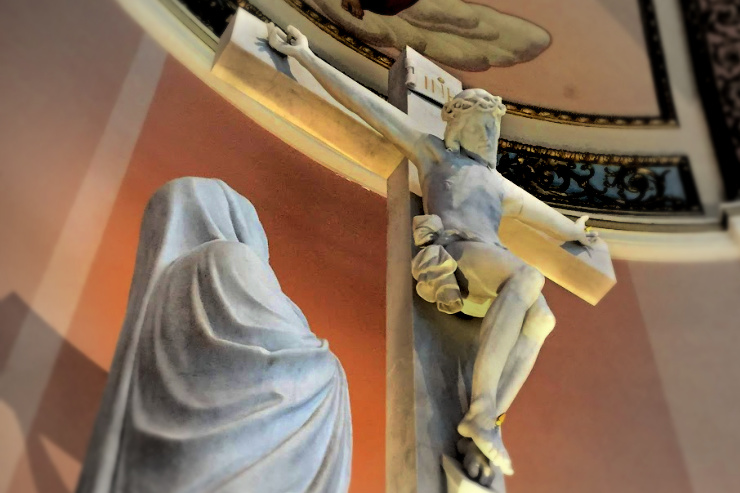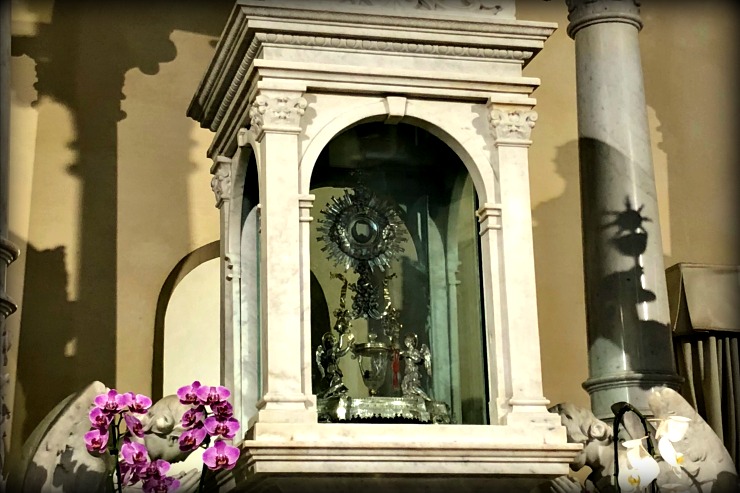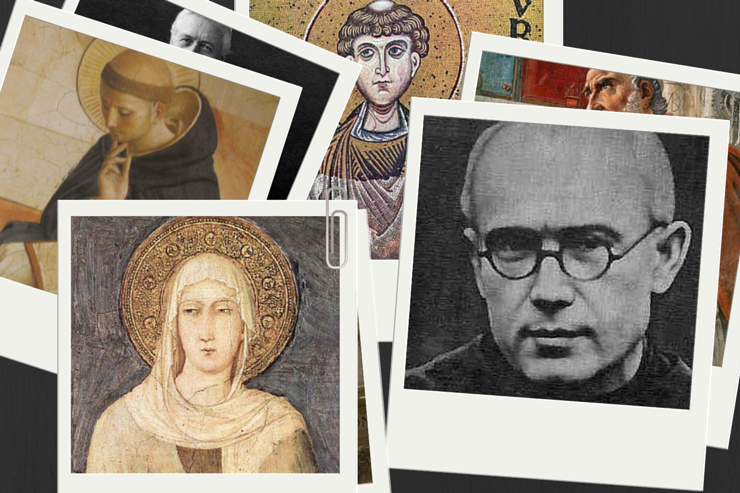
“The obedience at the Annunciation comes to full flower at the foot of the Cross.”
“Standing by the cross of Jesus were his mother and his mother’s sister, Mary the wife of Clopas, and Mary of Magdala” (Jn 19:25).
Mary stands at the foot of the cross. Stabat Mater.
She stands there as a mother, watching her son undergo the brutal agony of crucifixion. Watching Jesus struggle for breath, she feels each breath as only a mother could.
She stands there as our mother, knowing her children’s sin and rejection had done this. In ways we cannot comprehend, Her pierced heart forgives her wayward children.
She stands there as New Eve, with unwavering obedience to a Creator whose plan she might not fully understand. At the foot of the Tree of Life, she remains faithful even as the dragon appeared victorious.
Even with the companionship of John and the Marys, she stands there alone. No one can empathize. No one knows what it means to be a sinless witness of the Cross. She is alone.
Before her eyes is the manifestation of the effects of sin. She witnesses the horror of the Cross with her pure heart, a heart unaffected by concupiscence. Our hearts have become desensitized. Hers is fully sensitive, and she sees sin for the horror it is.
This is why John Paul II said, “No one has experienced to the same degree as the Mother of the crucified One the mystery of the cross.”
Mary stands at the foot of the cross in complete obedience. Throughout her life, she continued to untie the knot of Eve’s disobedience. All those moments were leading to this. Every step of her sinless life – her unwavering, unconditional vulnerability to the plan of God, no matter what the cost – was walking here.
The Annunciation. The Prophecy of Simeon. The Flight into Egypt. The departure of Jesus for his public ministry. The Cross.
Mary stands at the foot of the cross.
In the Middle Ages, there began a tendency in art to depict the Blessed Mother swooning under the cross. The artists show her having fainted and being supported by those around her. A few meditations written at that time speak about the “swoon of the Blessed Mother,” and a popular medieval meditation book mentioned three swoons, obviously intended to parallel the three falls of Christ.
Interestingly, when the Church was asked to officially speak on the matter – some even wanted a feast day for the Swooning — most Church theologians came out staunchly against it. Cajetan, best known for his opposition at the time to Martin Luther, said that Mary would have suffered with her full mind. He also pointed out that it was unbiblical. John’s Gospel tells us that Mary was “standing.”
Mary experiences the cross with her full mind, acutely aware of every drop of blood shed. Her motherly heart crying out for a way to stop the pain of her son, she submits. The obedience at the Annunciation comes to full flower at the foot of the Cross. The peaceful moment in Nazareth leads to the horror in Jerusalem.
She stands, unwavering in her obedience, vulnerability, fidelity, and love. May she be our model in suffering and in perplexity. When it seems the dragon has won, when it seems that the Father is silent, when it seems that Love has died, when the loss seems too great to bear – Mary, stand with us.
Please share this article on Facebook and other social media.














